How Home Management CRM Helps Builders Stay Efficient

In today's fast-paced construction world, home builders are expected to do far more than simply build homes. They must manage complex workflows, organize documents, keep clients informed, and deliver a seamless post-sale experience.
Trying to juggle all this with paper files, spreadsheets, and endless email chains is time-consuming and risky. That's where homebuilder software comes in — a digital platform designed to simplify, automate, and streamline how builders manage homes from start to finish.
If you're a U.S. builder looking to save time, reduce errors, and boost customer satisfaction, here's why home management software is now essential for your business.
What Is Homebuilder Software?
Homebuilder Software (also known as home management CRM) is a specialized digital tool that helps builders organize every aspect of their projects and homeowner data — from construction documents to post-sale maintenance schedules.
Unlike general project management systems, CRM for homebuilders is built for the unique workflows of residential construction and homeowner support.
With one platform, builders can:
- Store and manage home documents like blueprints, permits, and warranties
- Track home inventories for appliances, fixtures, and materials
- Automate maintenance reminders and homeowner notifications
- Streamline communication with homeowners and teams
In short, it's your centralized hub for all things homebuilding — helping you deliver organization, transparency, and long-term value to your clients.
Why Every Home Builder Needs Homebuilder Software
1. Centralized Document Management
Construction projects generate hundreds of documents — plans, permits, contracts, inspection reports, and more. Managing them manually increases the risk of loss, duplication, and outdated information.
Homebuilder software solves this by providing secure, cloud-based document management. You can upload, share, and access all files in one place — and easily hand over a complete digital record to homeowners when the project is done.
Pros:
- Reduces paperwork and confusion
- Ensures version control and compliance
- Improves collaboration across teams
2. Simplified Home Inventory Tracking
Every new home contains dozens of components — from appliances and flooring to HVAC systems and lighting fixtures. Tracking this information manually can lead to costly mistakes during repairs or warranty claims.
With home inventory management tools, builders can record all installed products, including model numbers, warranty periods, and vendor details. Homeowners get easy access to everything they need to maintain and replace items in the future.
Pros:
- Organized, digital catalog of all installed assets
- Streamlines warranty and service claims
- Enhances post-sale transparency for clients
3. Smarter Maintenance Tracking & Notifications
Maintenance is one of the most overlooked aspects of homeownership — and one of the most common causes of homeowner frustration.
Home management software automates this process by scheduling recurring tasks and sending reminders for routine maintenance like HVAC servicing, plumbing checks, or roof inspections. Builders can even pre-set these reminders before handing over the home.
Pros:
- Prevents future damage and costly repairs
- Reduces warranty claims and emergencies
- Strengthens builder reputation through proactive care
4. Better Communication and Collaboration
Between contractors, vendors, and clients, communication can quickly become disorganized. Missed messages or outdated updates can derail timelines and create frustration.
With software for homebuilders, communication happens in one central place. Everyone — from builders to homeowners — can share updates, files, and notes in real time. Many platforms even offer client dashboards so homeowners can see progress, documents, and notifications on demand.
Pros:
- Reduces miscommunication and delays
- Keeps all stakeholders aligned
- Improves professionalism and transparency
5. Efficient Post-Sale and Warranty Management
After the keys are handed over, warranty and service management often become messy. Without a proper system, tracking issues and follow-ups can consume valuable time.
Homebuilder CRM offers a structured post-sale management process. Builders can log service requests, track repairs, and maintain a digital record of all warranty interactions — ensuring accountability and faster response times.
Pros:
- Simplifies warranty tracking
- Reduces client disputes
- Enhances customer satisfaction and trust
Key Features to Look for in Homebuilder Software
When choosing the right home management software, prioritize tools designed for the construction and homeowner lifecycle.
Essential features include:
- Document Management: Store and organize all home-related documents securely.
- Home Inventory: Record and manage detailed lists of appliances, fixtures, and systems.
- Maintenance Scheduling: Automate homeowner reminders and reduce warranty claims.
- Cloud-Based Access: Access data from anywhere, at any time.
- Mobile Compatibility: Enable on-site updates and client communication.
- Data Security: Protect sensitive project and homeowner information.
- Scalability: Choose a system that grows as your business expands.
A platform like HomeHub360 is a great example of how digital home management tools bring these capabilities together — simplifying handovers, improving homeowner engagement, and ensuring long-term client satisfaction.
Tips for Successful Results
Even the best software won't deliver results without proper planning and team buy-in. To make your transition smoother, follow these steps:
- Start with clear goals: Identify key pain points — such as lost documents or post-sale issues — and focus on solving them first.
- Train your team: Schedule onboarding sessions to ensure everyone understands how to use the system effectively.
- Launch gradually: Start with one project or community before expanding across your portfolio.
- Engage homeowners: Introduce the platform during handover and show clients how to access their digital home records.
- Review regularly: Monitor results, gather feedback, and make improvements over time.
The Future of Home Building Is Digital
The homebuilding industry is evolving rapidly. Buyers now expect digital access to their property information, real-time updates, and organized documentation. Builders who meet these expectations with technology will stand out in a competitive market.
By adopting homebuilder software, you not only modernize your operations but also position your brand as innovative, reliable, and client-focused.
Final Takeaway
Running a home-building business today means managing hundreds of details — from planning and construction to handover and homeowner support. Without a unified system, even experienced builders struggle to stay organized.
Homebuilder software gives you that system — centralizing documents, home inventories, and maintenance reminders in one simple, digital space. It's not just about efficiency; it's about providing a better, smarter experience for homeowners.
In an industry driven by trust and precision, adopting home management software is no longer optional — it's the key to staying competitive, building stronger relationships, and ensuring every home you deliver remains well-managed for years to come. Contact us today to schedule your free demo.
